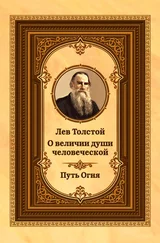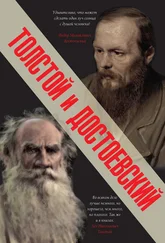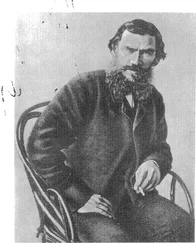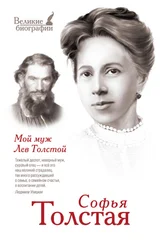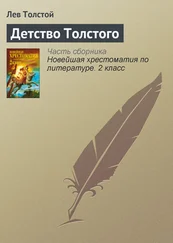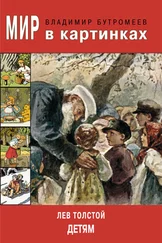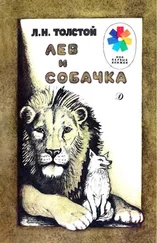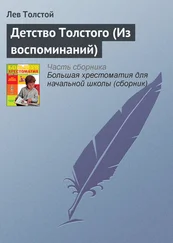Лев Толстой - Katia
Здесь есть возможность читать онлайн «Лев Толстой - Katia» весь текст электронной книги совершенно бесплатно (целиком полную версию без сокращений). В некоторых случаях можно слушать аудио, скачать через торрент в формате fb2 и присутствует краткое содержание. Издательство: Иностранный паблик, Жанр: Русская классическая проза, на английском языке. Описание произведения, (предисловие) а так же отзывы посетителей доступны на портале библиотеки ЛибКат.
- Название:Katia
- Автор:
- Издательство:Иностранный паблик
- Жанр:
- Год:неизвестен
- ISBN:нет данных
- Рейтинг книги:3 / 5. Голосов: 1
-
Избранное:Добавить в избранное
- Отзывы:
-
Ваша оценка:
- 60
- 1
- 2
- 3
- 4
- 5
Katia: краткое содержание, описание и аннотация
Предлагаем к чтению аннотацию, описание, краткое содержание или предисловие (зависит от того, что написал сам автор книги «Katia»). Если вы не нашли необходимую информацию о книге — напишите в комментариях, мы постараемся отыскать её.
Katia — читать онлайн бесплатно полную книгу (весь текст) целиком
Ниже представлен текст книги, разбитый по страницам. Система сохранения места последней прочитанной страницы, позволяет с удобством читать онлайн бесплатно книгу «Katia», без необходимости каждый раз заново искать на чём Вы остановились. Поставьте закладку, и сможете в любой момент перейти на страницу, на которой закончили чтение.
Интервал:
Закладка:
He spoke jestingly, but I thought I detected an undertone of serious meaning, which might have some reference to me; and Macha never allowed even playful aspersions upon her heroes of romance.
“Always paradoxes!” she exclaimed. “Come now, be honest, have you yourself never said to a woman that you loved her?”
“Never have I said so, never have I bowed a knee,” he replied laughing, “and never will I!”
“Yes, he need not tell me that he loves me!” I thought, now vividly recalling this conversation. “He does love me, and I know it. And all his efforts to seem indifferent cannot take away this conviction!”
During the whole evening he said very little to me, but in every word, in every look and motion, I felt love, and no longer had any doubts. The only thing that vexed and troubled me was that he should still judge it necessary to conceal this feeling, and to feign coldness, when already all was so clear, and we might have been so easily and so frankly happy almost beyond the verge of possibility. Then, too, I was tormenting myself as though I had committed a crime, for having jumped down into the cherry orchard to join him, and it seemed as if he must have ceased to esteem me, and must feel resentment against me.
After tea, I went to the piano, and he followed.
“Play something, Katia, I have not heard you for a long time,” he said, joining me in the drawing-room. “I wished … Sergius Mikaïlovitch!” And suddenly I looked right into his eyes. “You are not angry with me?”
“Why should I be?”
“Because I did not obey you this afternoon,” said I, blushing.
He understood me, shook his head, and smiled. And this smile said that perhaps he would willingly have scolded me a little, but had no longer the strength to do so.
“That is done with, then, isn’t it? And we are good friends again?” I asked, seating myself at the piano.
“I think so, indeed!”
The large, lofty apartment was lighted, only by the two candles upon the piano, and the greater portion of it was in semi-darkness; through the open windows we beheld the luminous stillness of the summer night. The most perfect calm reigned, only broken at intervals by Macha’s footfall in the adjoining room, which was not yet lighted, or by an occasional restless snort or stamp from our visitor’s horse, which was tied under one of the casements. Sergius Mikaïlovitch was seated behind me, so that I could not see him, but in the imperfect darkness of the room, in the soft notes that filled it, in the very depths of my being, I seemed to feel his presence. Every look, every movement, though I could not distinguish them, seemed to enter and echo in my heart. I was playing Mozart’s Caprice-sonata, which he had brought me, and which I had learned before him and for him. I was not thinking at all of what I played, but I found that I was playing well and thought he was pleased. I shared his enjoyment, and without seeing him, I knew that from his place his eyes were fixed on me. By a quite involuntary movement, while my fingers continued to run over the keys, unconscious of what they were doing, I turned and looked at him; his head stood out in dark relief against the luminous background of the night. He was sitting with his brow resting on his hand, watching me attentively with sparkling eyes. As mine met them, I smiled, and stopped playing. He smiled also, and made a motion with his head towards my notes, as if reproaching me and begging me to keep on. Just then the moon, midway in her course, soared in full splendor from a light cloud, pouring into the room waves of silvery radiance which overcame the feeble gleam of our wax candles, and swept in a sea of glory over the inlaid floor. Macha said that what I had done was like nothing at all, that I had stopped at the very loveliest part, and that, besides, I had played miserably; he, on the contrary, insisted that I had never succeeded better than this evening, and began pacing about restlessly, from the dim drawing-room into the hall, from the hall back again into the drawing-room, and every time he passed he looked at me and smiled. I smiled too though without any reason; I wanted to laugh, so happy was I at what had taken place that day, at that moment even. While the door hid him from me for an instant I pounced upon Macha and began to kiss her in my pet place on her soft throat under her chin, but when he reappeared I was perfectly grave, although it was hard work to keep from laughing.
“What has happened to her, to-day?” Macha said.
He made no answer, but began to tease and make laughing conjectures. He knew well enough what had happened to me!
“Just see what a night!” he said presently, from the door of the drawing-room, opening on the garden balcony.
We went and stood by him, and indeed I never remember such a night. The full moon shone down upon us from above the house with a glory I have never seen in her since; the long shadows of the roof, of the slender columns and tent-shaped awning of the terrace stretched out in oblique foreshortening, over the gravel walk and part of the large oval of turf. The rest lay in brilliant light, glistening with dew-drops turned by the moon’s rays to liquid silver. A wide path, bordered with flowers, was diagonally cut into at one edge by the shadows of tall dahlias and their supporting stakes, and then ran on, an unbroken band of white light and gleaming pebbles until it was lost in the mist of distance. The glass roof of the orangery sparkled through the trees, and a soft vapor stealing up the sides of the ravine grew denser every moment. The tufts of lilac, now partially faded, were pierced through and through by the light; every slender foot-stalk was visible, and the tiny flowers, freshened by the dew, could easily be distinguished from each other. In the paths light and shadow were so blended that one would no longer have said there were trees and paths, but transparent edifices shaken with soft vibrations. On the right of the house all was obscure, indistinct, almost a horror of darkness. But out of it sprang, more resplendent from the black environment, the fantastic head of a poplar which, by some strange freak, ended abruptly close above the house in an aureole of clear light, instead of rising to lose itself in the distant depths of dark blue sky.
“Let us go to walk,” said I.
Macha consented, but added that I must put on my galoshes.
“It is not necessary,” I said; “Sergius Mikaïlovitch will give me his arm.”
As if that could keep me from getting my feet wet! But at that moment, to each of us three, such absurdity was admissible, and caused no astonishment. He had never given me his arm, and now I took it of my own accord, and he did not seem surprised. We all three descended to the terrace. The whole universe, the sky, the garden, the air we breathed, no longer appeared to me what I had always known.
As I looked ahead of me in the path we were pursuing, I began to fancy that one could not go beyond, that there the possible world ended, and that all there would abide forever in its present loveliness.
However, as we went on, this enchanted wall, this barrier built of pure beauty, receded before us and yielded us passage, and I found myself in the midst of familiar objects, garden, trees, paths, dry leaves. These were certainly real paths that we were pursuing, where we crossed alternate spaces of light and spheres of darkness, where the dry leaves rustled beneath our feet, and the dewy sprays softly touched my cheek as we passed. It was really he, who walked by my side with slow, steady steps and with distant formality, allowed my arm to rest upon his own. It was the real moon, high in the heavens, whose light came down to us through the motionless branches.
Once I looked at him. There was only a single linden in the part of the path we were then following, and I could see his face clearly. He was so handsome; he looked so happy…
Читать дальшеИнтервал:
Закладка:
Похожие книги на «Katia»
Представляем Вашему вниманию похожие книги на «Katia» списком для выбора. Мы отобрали схожую по названию и смыслу литературу в надежде предоставить читателям больше вариантов отыскать новые, интересные, ещё непрочитанные произведения.
Обсуждение, отзывы о книге «Katia» и просто собственные мнения читателей. Оставьте ваши комментарии, напишите, что Вы думаете о произведении, его смысле или главных героях. Укажите что конкретно понравилось, а что нет, и почему Вы так считаете.

